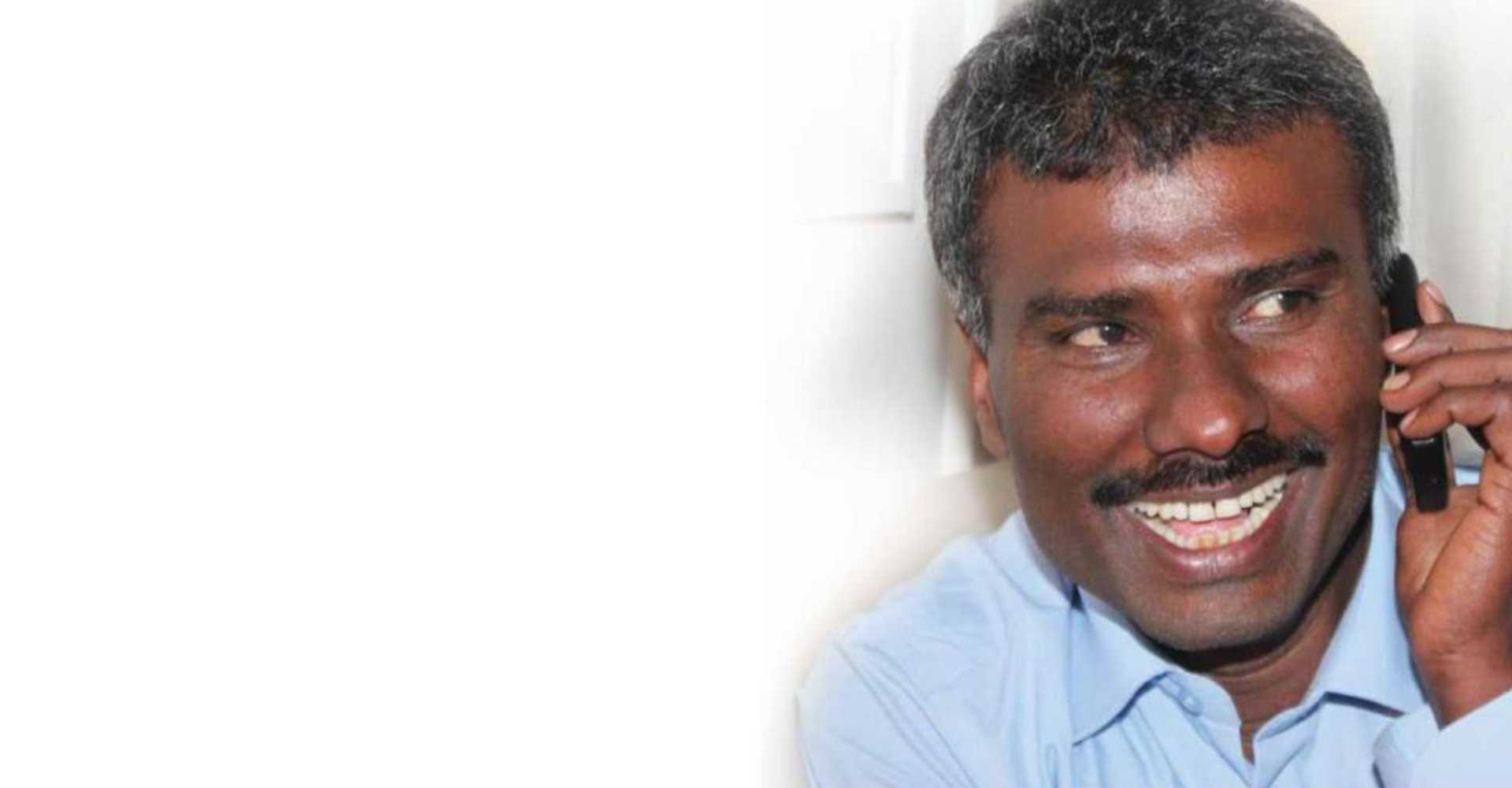Fr. Alexis Prem Kumar has shaved off his beard that he had grown in captivity. He has also lost apparently close to 20 kilograms of his weight. That is the visible difference between the man who was taken to captivity eight months ago, released this week and brought back home to India.
He spent three years doing hard work in the hinterland of Afghanistan, giving education to the children and particularly to the girls of the tribes of Tajiks, Uzbeks, Pashtuns etc., in cities as diverse as Herat, Peshawar and Kabul.
Fr. Prem, 47, a Jesuit from Tamil Nadu, from the Madras province, was working with the Jesuit Refugee Service, a pioneering global endeavour, of the redoubtable Society of Jesus, which works with refugees on the borders of India as in the borders of most conflict areas in the world. A very large number of the personnel of this group are from India working not just in Afghanistan but also on the borders of Bhutan, Africa and Latin America.
Before moving to Afghanistan five years ago, Fr. Prem was working for the Jesuit Refugee Service in Tamil Nadu ministering to the Sri Lankan refugees living in the state.
In Afghanistan, Jesuit Refugee Service (JRS) works mainly in the area of education for the war-affected youth, especially those returning after seeking refuge in Iran or Pakistan. They provide teachers for the English Access Program, teaching young people English in Herat and Kabul, opening for them an opportunity for higher education abroad. The JRS provides teacher trainings, university faculty, and informal education in cities and rural villages, filling education gaps that other NGOs and government agencies do not.
Before moving to Afghanistan five years ago, Fr. Prem was working for the Jesuit Refugee Service in Tamil Nadu ministering to the Sri Lankan refugees living in the state. At the time of his kidnapping, he was serving as the Afghanistan Director for JRS.
Speaking to media, Fr. Prem recounted the fateful day i.e. June 2, 2014, when he was kidnapped from Sohadat village, 25 kilometres from Herat city. He had gone to the village to check on a school that was being run with the support of the JRS.
“I had received warnings from the Indian Consulate in Herat which had already been attacked [on May 23]. Even the locals in Sohadat village, had sensed that the Taliban might target Indians.”
“Around half past noon, when the children had left and the staff was about to, I saw a vehicle with four armed men approaching. I just knew they would either kidnap [me] or attack. We ran in all directions to escape, but they opened fire. I soon realised their target was very clear as I heard them ask the locals where the foreigner was,” he told the media.
He was put in a vehicle and was told not to look up as they travelled. He recalls his kidnappers being firm but friendly and extremely generous with food. He could not understand them, he said, as they were speaking in Pashto.
He recalled the way he was kept blindfolded and shifted from place to place. “It was painful … they kept shifting me from one place to another, some without a roof … others were ordinary houses. I stayed at one place from eight days to even 81 days at a stretch.”
As soon as he was taken captive, efforts for his release had started. His family had come to Delhi and had met Mrs. Sushma Swaraj, Minister of External Affairs of India, who had assured them of the help of the government.
Many other people were at work for the same cause. Human rights activists, global human rights defenders, behind the scene diplomatic activity by the Government of India and the Vatican itself made efforts to secure the release of Fr. Prem.
It was a happy moment when the Prime Minister of India, Narendra Modi tweeted on February 22, 2015, “Have spoken to Fr. Alexis Prem Kumar. Informed happy family of Father Alexis Prem Kumar of his safe return after 8 months in captivity.”
Fr. Prem’s family members including his father ASM Antony rushed to Delhi to welcome him home. His father expressed his thankfulness to the Prime Minister for “his personal efforts”.
That assertion from Mr. Modi itself came in the context of almost eight months of a vicious campaign by the Hindutva Parivar which was challenged and condemned not just by minorities but also by Human Rights movements
Speaking to media Fr. Prem recalled that barely 10 days into his captivity, his captors gave him hope that his release may be secured soon as negotiations had begun concerning him. However, days turned into months, as he waited for good news.
It was on January 15, 2015 that he was told again of his probable release. However it took nearly a month before this became close to becoming a reality.
“One day they told me that the JRS South Asia regional director had met Taliban representatives in Qatar and I would be freed. The next day, we embarked on a two-day drive, changing vehicles and people on the way,” Fr. Prem told the media.
He was dropped at a place, amid heavy cross firing and was instructed to run. He said, “They gave me a cell phone which I used to communicate with the Indian Embassy officials who finally rescued me.”
The full story of his captivity and release will only come up after some months once Fr. Prem has recovered and can think back and put micro details in the complex web that is Afghanistan. At the moment he is still to be fully debriefed by the various agencies working for the Government of India.
His release is good news for the family and the Christian community in India. Dr. John Dayal, the spokesperson for the United Christian Forum said, “It is wonderful that Fr. Alexis Prem Kumar is back with us. His work in Afghanistan is a tribute to the commitment not just of the Jesuits, but of followers of Jesus’ work for the empowerment of the poor irrespective of the threats they face on their own lives.”
However the release of Fr. Prem is possibly a bigger good news for the Government of India and in particular to the Prime Minister Narendra Modi as it adds to his secular image, coming as it does in the wake of the assurances given by him as part of his speech at the Church function in Delhi, some days ago, about freedom of faith guarantees under his government in India.
That assertion from Mr. Modi itself came in the context of almost eight months of a vicious campaign by the Hindutva Parivar which was challenged and condemned not just by minorities but also by Human Rights movements and which found its culmination in speeches made by Mr. Barack Obama and by the President and Vice President of India. Fr. Prem remains hesitant to speak in detail but one thing he does emphasise about his experience in Afghanistan: “I spent three years doing hard work and close to one year in reflection. I am grateful to God and to all who prayed for me. I literally felt those prayers. I am thankful.”






